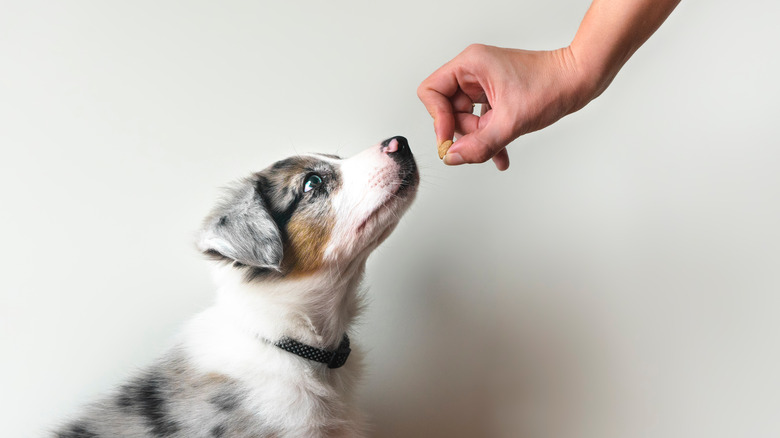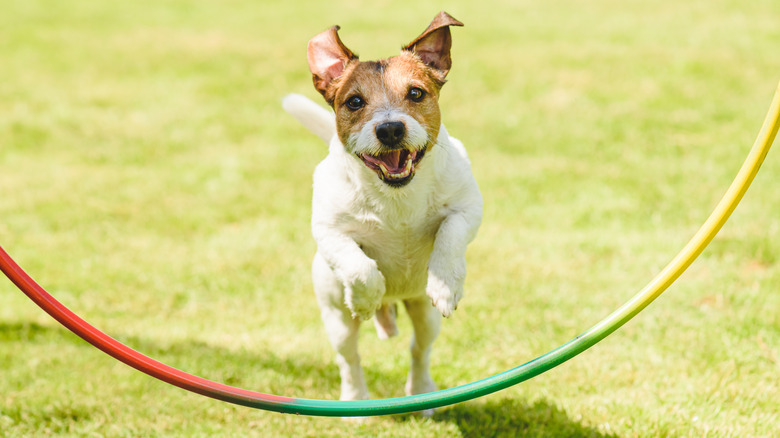Are Puppy Training Classes Worth It?
Your dream puppy is finally home with you. And although there is plenty of cuteness and cuddles, soon enough, the reality kicks in. Your puppy needs training. Don't worry, though. It's completely normal for puppies to misbehave because they simply don't know right from wrong yet. Healthy pups are incredibly playful and curious, and want to investigate everything using their mouths and sharp baby teeth.
You can supervise your puppy and remove tempting objects, but at a certain point, you'll want to instill some behavioral training to prevent any bad habits from worsening (via VCA Animal Hospitals). Puppy training is essential because it "builds confidence, provides mental stimulation and strengthens the human-animal bond," per Loyal Companions, an AAHA-accredited veterinarian and pet resort in Illinois.
Now that we understand the importance of training your new best friend, the question is where and how? Are most owners capable of teaching their new dogs by themselves, or should they attend group or private classes? We did the research to help you determine whether puppy training classes are actually worth it.
Why puppy training classes are critical
Training at home allows your puppy to fully concentrate on you while growing your bond. In contrast, group classes give your dog the chance to work on their focusing skills even while the distraction of other dogs surrounds them. Group lessons are also an excellent way to socialize your puppy during the critical socialization period of three to 17 weeks, which is one reason they come highly recommended by the RSPCA. The social cues they'll learn will affect how they interact with dogs they meet at parks when you walk them every day, even into their adult years.
If you are still dealing with behavioral issues even after group training classes, there is always the option of private lessons. These are often more expensive, but they will be worth it if your puppy shows signs of aggression and separation anxiety (via the American Kennel Club). Beyond basic obedience, there are a variety of advanced classes out there like agility, comprehensive tricks, and flyball. If dog sports like these are important for your lifestyle, then these classes will be worth it. If not, you can easily spend time bonding with and exercising your dog through a variety of outdoor adventures.
In the end, the truth is that both at-home training and dog training classes are critical to owning a happy, well-behaved dog. And in any training scenario, RSPCA recommends focusing on positive reinforcement and reward-based techniques because they are safe and effective.

